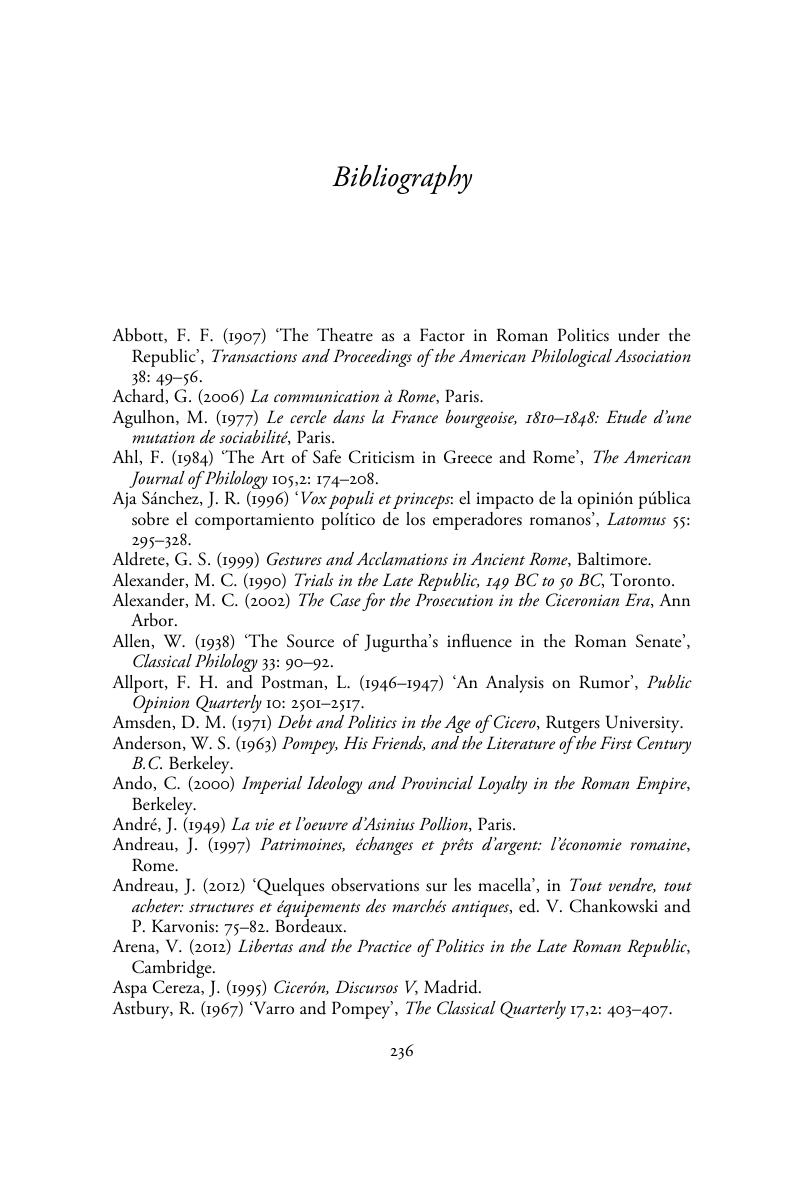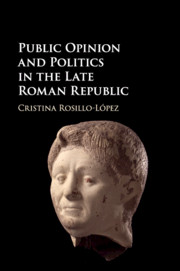Book contents
- Public Opinion and Politics in the Late Roman Republic
- Public Opinion and Politics in the Late Roman Republic
- Copyright page
- Dedication
- Contents
- Map
- Acknowledgements
- Introduction
- Chapter 1 Public Opinion in Rome
- Chapter 2 Sociability and Politics
- Chapter 3 Rumours, Gossip and Conversations in Roman Political Life
- Chapter 4 Political Literature and Public Opinion (I)
- Chapter 5 Political Literature and Public Opinion (II)
- Chapter 6 Groups and Agents of Public Opinion
- Chapter 7 Rhetoric and Public Opinion
- Chapter 8 Conclusions
- Bibliography
- Index of People
- Subject Index
- References
Bibliography
Published online by Cambridge University Press: 03 June 2017
- Public Opinion and Politics in the Late Roman Republic
- Public Opinion and Politics in the Late Roman Republic
- Copyright page
- Dedication
- Contents
- Map
- Acknowledgements
- Introduction
- Chapter 1 Public Opinion in Rome
- Chapter 2 Sociability and Politics
- Chapter 3 Rumours, Gossip and Conversations in Roman Political Life
- Chapter 4 Political Literature and Public Opinion (I)
- Chapter 5 Political Literature and Public Opinion (II)
- Chapter 6 Groups and Agents of Public Opinion
- Chapter 7 Rhetoric and Public Opinion
- Chapter 8 Conclusions
- Bibliography
- Index of People
- Subject Index
- References
Summary

- Type
- Chapter
- Information
- Public Opinion and Politics in the Late Roman Republic , pp. 236 - 264Publisher: Cambridge University PressPrint publication year: 2017



